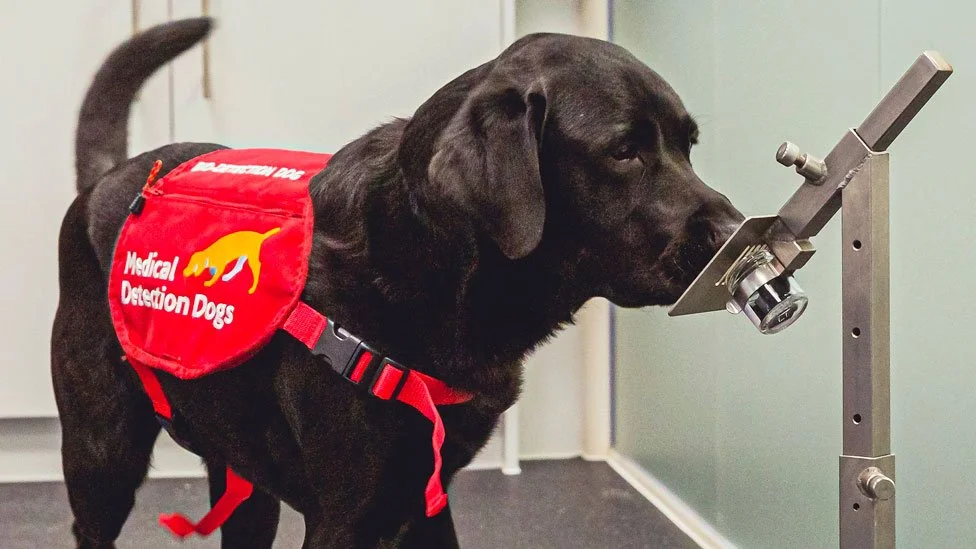Dogs have a long history of being used by humans and have developed an ability to read human cues. They also have an exceptional sense of smell that allows them to detect diseases such as COVID-19 and lung cancer simply through scent. However, their ability to detect odors associated with psychological states has been less studied. A recent study published in the journal PLOS One aimed to determine whether dogs can detect odors associated with stress in humans.
To conduct the study, sensors were attached to participants to measure heart rate and blood pressure, and participants rated their stress levels before and after completing a task designed to induce stress. Samples of sweat and breath were collected before and after the task, and only samples from participants who reported finding the task stressful and had increased heart rate and blood pressure were included in the study. A total of 36 people's samples were presented to the dogs.
The dogs used in the study were pets trained using positive reinforcement in a laboratory setting. They were first taught to communicate when they detected a specific odor by freezing or sitting in front of it. They were then taught to discriminate between samples with known odor differences. During the testing phase, the dogs were shown a stress sweat/breath sample alongside two control samples and were rewarded for identifying the stress sample. They were then presented with the same person's relaxed sample and tested on their ability to discriminate between the two scents.
The results of the study showed that the dogs were able to consistently differentiate between the stress and relaxed samples, indicating that they can detect odors associated with psychological stress in humans. This research could have potential applications in the medical field and in the study of stress and mental health.






